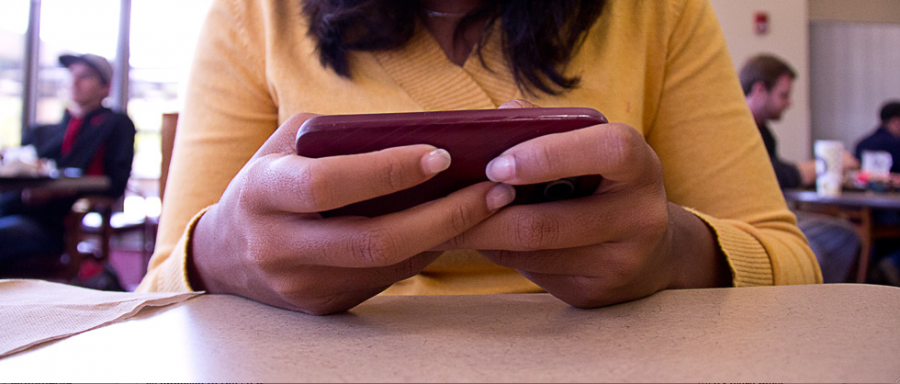A new addiction is being added to the long list, right alongside drugs and alcohol – nomophobia, an addiction to cellphones.
In 2008, British researchers coined the term nomophobia for the anxiety one feels when having no access to their mobile phone.
A recent study sponsored by SercurEnvoy showed that the number of people suffering from nomophobia has grown to 66 percent, as opposed to the 53 percent four years ago. Of the 1,000 people surveyed, those between the ages of 18 and 24 were most dependent on their cellphones, with 77 percent of them feeling uncomfortable when away from their phones for more than a few minutes.
“I think college-aged and younger children are particularly at risk for addiction because they use [cellphones] more than older generations,” said Rosanna Guadagno, program director of social psychology for the National Science Foundation,
Guadagno said she also believes smartphones are the main contributing factor in this new addiction because of their texting abilities, applications and Internet capabilities.
Lauren Parks, a junior majoring in restaurant and hospitality management, said she thinks cellphone addiction is sad and pathetic.
“It shows how our society has changed to be so dependent on technology,” Parks said.
In January, The Chicago Tribune reported a survey from a mobile app company, TeleNav, Inc., that showed 40 percent of people with iPhones said they would rather give up brushing their teeth for a week than go without their smartphone.
Davion Tolver, a sophomore majoring in computer science, said he thinks he could go a week without his phone, but it would be inconvenient.
“I’m on it a majority of the day,” Tolver said. “Not that I need to be, but why not?”
Associate professor of psychology James Hamilton believes mobile devices utilize two different types of reinforcements that lead to dependence: positive and negative.
Positive reinforcement involves rewards, like winning a game, receiving a compliment or seeing a trailer for a newly released movie, Hamilton said.
Mobile phones provide these types of positive stimulation for users, causing people to want to continue to use them.
“Cellphones are negatively reinforcing because they provide an easy and immediate relief from feelings of anxiety, social exclusion or boredom,” Hamilton said.
He said if you are worried your boyfriend might dump you, you can text him or if you are worried about your grade in chemistry, you can log on to the course website and check every 15 minutes for three days straight. Mobile devices provide relief from these negative feelings.
“This is the great danger of cellphone dependency – the general erosion of our ability to wait, postpone gratification, deal directly with our fears and tolerate being bored or alone with ourselves,” Hamilton said.
Emily Kerlin, a junior majoring in exercise and sport science, said she doesn’t feel she is addicted to her phone, but she does always have it with her. Kerlin said she is in a long-distance relationship and feels this is why she needs to be constantly available.
“I totally believe people are addicted to their phones because you can do everything on your phone that you can do on your computer,” Kerlin said.
Contrastingly, Tolver said he thinks people are just overacting when they say you can be addicted to your cellphone.
“It’s not that big of a deal,” Tolver said. “People just like talking to people all the time.”









